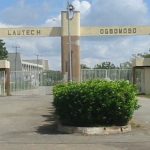Education is an essential part of an individual’s life. It’s a learning process enabling individuals to express themselves, achieve specific goals that breed success, and learn about their environment and the world. The exciting part is how this is not a one-way concept.
Education is frequently categorized into two types;informal and formal education. This content is set to shed light on one of the types of education: informal education, which has been frequently compared to formal education, which is widely accepted and practiced.
Informal education has existed for years in various parts of Africa, especially Nigeria. It was the earliest and highest form of learning before formal education’s evolution.
Informal education has served as the foundation of early childhood education. Although in Nigeria today, many believe informal education is better than formal education, whereas the majority lean towards formal education since it was introduced and presented as the best and acceptable way of getting educated, and it became primarily adopted over time.
But checking from an educational point of view, informal education is better than formal education. This is because humans are inclined to learn more informally than formally.
Table of Contents
What is Informal Education?
Informal education is a learning process involving the traditional method of passing on knowledge and skills without an integrated syllabus.
Informal education is a natural form of lifelong learning. It takes place on any occasion, anywhere, and at any time.
It automatically includes in its scope the teachings of a regular classroom, but it is not limited to a classroom setting compared to formal education.
Informal education works towards providing the learners with broader knowledge, information, and depth in the learning settings that would mark a better and more extensive experience.
Read also: How to create a positive learning environment for yourself.
Similarities Between Formal and Informal Education
Informal and formal education are the topmost and most common forms of education. Informal education undoubtedly has some similarities with formal education and they include the following;
1. Both formal and informal education are means of inculcating positive changes in the psychology and conduct of the learners.
2. They impart knowledge and specific skills to the learner and greatly influence an individual’s professional career.
3. These two types of education wholly depend on the learner’s participation; the learner determines the quantity of knowledge they will consume and comprehend through their distinctive devotion to learning and the teaching method.
Are you an online entrepreneur? Join our WhatsApp community to learn informally and develop your skills.
Differences Between Formal And Informal Education
-
Curriculum
A significant difference between informal learning and formal learning is in the aspect of the curriculum. Informal education has a curriculum open to different aspects of learning, while formal education operates on a different level.
It is guided by a structured curriculum usually controlled by what the government of a country or state wants.
In other words, informal education offers a wide range of learning experiences, while formal education is narrow and limited.
-
Structure
Another crucial point is the ease informal learning provides for learners to learn on any occasion at any time. Learning occurs from everyday experiences, environments, societal or family settings, group discussions, and online programs.
It can also be called homeschooling, self-teaching, auto-didacticism, etc.
Meanwhile, in formal education, the learning process is limited to a location and a particular attire, i.e. a school or institution, a uniform, and different stages to be completed in hierarchical order.We have;
- the primary level.
- junior secondary school
- senior secondary school as referenced here in Nigeria.
- And tertiary institutions, i.e. colleges of education, polytechnics and universities.
This learning process also involves learners partaking in assessment tests, writing papers or exams for promotion from one stage to the other and to qualify for a certificate at the end of each stage or degree at the tertiary level.
Certificates or degrees are acceptable documents that can be used to access jobs.
-
Medium
Formal Education involves concrete instructions presented and taught by an expert or a teacher. In contrast, informal education is based on self-learning, where the learner indulges in gathering and collecting desired knowledge by conducting personal research by reading books.
Nowadays, informal learning is more accessible owing to media and technology devices available for self-learning.
Other differences are;
4. Informal Education is not goal-oriented, while formal education is focused on requirements to achieve specific set goals.
5. Informal Education does not require payment of fees before learning can occur, while formal education requires payment of school fees before learning can commence.
6. Informal learning is time efficient, whereas formal learning takes time. Usually, throughout an individual’s life.
Read also: Coding for kids: How to introduce your kids to a techie lifestyle.
Impact of Informal Education
There are many factors to draw on when establishing informal education’s impact on an individual’s life.
It is an excellent form of natural learning as you can learn anywhere and anytime. It is a compulsory and crucial part of the learning process as it serves as the first stage of learning for everyone.
Informal learning makes room for broader and better learning experiences as it exposes us to various concepts throughout our lives.
For example, a mother teaching her child how to make various dishes, a father teaching his child how to iron clothes, ride a bicycle or clean the surroundings well.
The impact of informal education comes in when employees lag in the workplace due to the limitations of formal education. The employee might not have been taught essential topics or skills in line with their work.
Then they can quickly get the desired knowledge through self-learning, thereby equipping them with broader knowledge and experience.
Another instance is when a student trying to know more about a particular topic taught in class resorts to self-learning by gathering information, most times through reading books or researching the internet.
Both formal and informal education work hand in hand and have different values to add to an individual in various aspects and career-wise.
Conclusion
In all, the impact of informal education in a person’s life cannot be downplayed, sometimes it is the edge that an individual needs to succeed in a space.
Subscribe to our newsletter to receive notifications of our latest value-filled posts.
About Author
- Lawal Jesutofunmi Mary is a Skin care expert, hair care consultant and content writer communicating helpful information on hair and skin care through writing. She is an avid reader who loves to broaden her horizons through reading. Writing reviews of books on personal growth and self development gives her joy.





